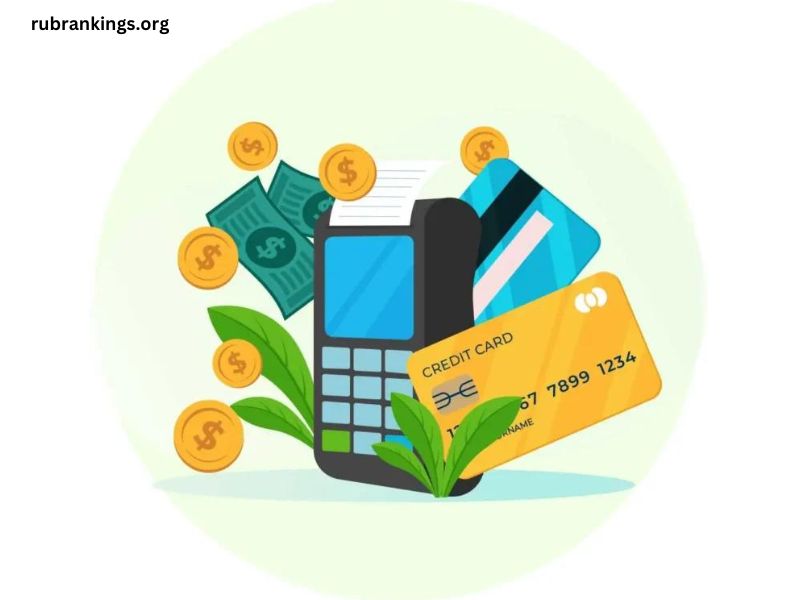In today’s financial landscape, credit cards are a ubiquitous part of everyday life, offering convenience and flexibility for managing expenses. While they offer several benefits, including rewards, cash back, and purchase protection, there are situations where using a credit card to finance purchases may not be the most prudent decision. This article delves into various negative aspects associated with using credit cards for financing purchases, highlighting the potential risks and drawbacks that can overshadow the benefits.
1. High-Interest Rates
One of the most significant downsides of using a credit card to finance purchases is the high-interest rates typically associated with credit card balances. Unlike other forms of credit, such as personal loans or mortgages, credit cards often come with annual percentage rates (APRs) that can range from 15% to 25% or more. This means that if you carry a balance from month to month, the interest charges can quickly accumulate, leading to a substantial increase in the total amount you owe.
For example, if you make a purchase of $1,000 on a credit card with a 20% APR and only make the minimum payments, you could end up paying significantly more than the original amount due to the accruing interest. This compounded interest can make it difficult to pay off the balance in a reasonable timeframe, resulting in long-term financial strain.
2. Increased Debt Burden
Using credit cards for financing can lead to an increased debt burden, especially if you consistently rely on credit for purchases. Credit cards make it easy to accumulate debt quickly, as they offer a revolving line of credit that can be used repeatedly. However, this convenience can lead to a false sense of financial security and may encourage overspending.
When you rely heavily on credit cards, your debt-to-income ratio can rise, which may affect your credit score and overall financial health. High levels of credit card debt can also limit your ability to qualify for other types of credit, such as loans or mortgages, as lenders often consider your credit card debt when assessing your creditworthiness.
3. Impact on Credit Score
While responsible credit card use can positively impact your credit score, misuse or overreliance on credit cards can have the opposite effect. High credit card balances relative to your credit limit can lead to a high credit utilization ratio, which is a significant factor in determining your credit score. Credit utilization refers to the percentage of your available credit that you are currently using.
For instance, if you have a credit limit of $5,000 and a balance of $4,000, your credit utilization ratio is 80%. A high credit utilization ratio can signal to creditors that you are overextended, potentially leading to a lower credit score. Additionally, late payments or carrying a balance close to your credit limit can further damage your credit score, making it harder to secure favorable terms on future credit.
4. Temptation to Overspend
Credit cards offer the allure of immediate gratification by allowing you to make purchases without having to pay upfront. This can create a temptation to overspend, especially if you are not diligent about tracking your expenses. The ease of swiping a credit card can lead to impulsive buying decisions, as it can be easy to lose sight of your budget and financial limits.
Moreover, credit cards often come with rewards programs, such as points or cashback, which can further incentivize spending. While these rewards can be beneficial, they can also encourage you to spend more than you would if you were paying with cash or debit. This behavior can result in accumulating unnecessary debt and financial stress.
5. Fees and Penalties
Credit cards come with various fees and penalties that can add to the overall cost of financing purchases. Some of these fees include annual fees, late payment fees, cash advance fees, and foreign transaction fees. These charges can quickly add up, particularly if you are not careful about managing your credit card account.
For example, if you miss a payment deadline, you may incur a late payment fee, which can range from $25 to $40. Additionally, if you take a cash advance from your credit card, you may be subject to a cash advance fee and a higher interest rate on the amount borrowed. These fees can significantly increase the total cost of using a credit card for financing.
6. Risk of Falling into a Debt Spiral
The ease of accessing credit through a credit card can sometimes lead to a dangerous cycle of debt. When you only make minimum payments or use credit cards to pay off other debts, you may find yourself trapped in a debt spiral. This occurs when you are continually borrowing to cover existing debts, leading to a growing financial burden that becomes increasingly difficult to manage.
In such cases, the interest charges and fees associated with credit card debt can exacerbate the problem, making it challenging to escape the cycle. As debt accumulates, it can become harder to make consistent payments, potentially leading to further financial distress and even bankruptcy.
7. Limited Financial Education and Awareness
Many consumers lack a thorough understanding of how credit card financing works and the potential long-term consequences of carrying a balance. Without proper financial education and awareness, individuals may not fully grasp the impact of interest rates, fees, and debt accumulation on their overall financial health.
The complexity of credit card terms and conditions can also contribute to this lack of understanding. Credit card agreements often include various fees, penalties, and interest rate changes that can be difficult for consumers to navigate. As a result, individuals may make uninformed decisions that lead to negative financial outcomes.
8. Potential for Identity Theft
Using a credit card involves sharing sensitive personal and financial information, which can make you vulnerable to identity theft. If your credit card information is stolen or compromised, it can lead to fraudulent transactions and unauthorized charges on your account. Resolving identity theft issues can be time-consuming and stressful, and it may require significant effort to restore your financial security.
While many credit card companies offer fraud protection and zero-liability policies, the process of dealing with identity theft can still have a substantial impact on your financial well-being and peace of mind.
Conclusion
While credit cards offer a range of benefits, including convenience, rewards, and purchase protection, it is essential to recognize the potential pitfalls associated with using them for financing purchases. High-interest rates, increased debt burden, negative impacts on credit scores, temptation to overspend, fees and penalties, risk of falling into a debt spiral, limited financial education, and potential for identity theft are all factors that can overshadow the advantages of credit card use.
To make informed financial decisions, it is crucial to weigh the benefits against the potential drawbacks and to use credit cards responsibly. Understanding the long-term implications of credit card financing can help you avoid unnecessary debt and maintain a healthy financial outlook.



